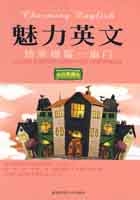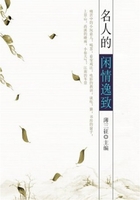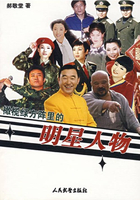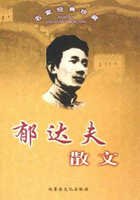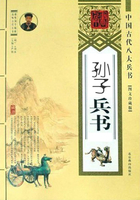Rafting Down the Neckar
马克·吐温 / Mark Twain
When the landlord learned that I and my agents were artists, our party rose perceptibly in his esteem; we rose still higher when he learned that we were making a pedestrian tour of Europe.
He told us all about the Heidelberg road, and which were the best places to avoid and which the best ones to tarry at; he charged me less than cost for the things I broke in the night; he put up a f?ine luncheon for us and added to it a quantity of great light-green plums, the pleasantest fruit in Germany; he was so anxious to do us honor that he would not allow us to walk out of Heilbronn, but called up Gotz Von Berlichingen’s horse and cab and made us ride.
I made a sketch of the turnout. It is not a Work. It is only what artists call a “study” — a thing to make a f?inished picture from. This sketch has several blemishes in it; for instance, the wagon is not traveling as fast as the horse is. This is wrong. Again, the person trying to get out of the way is too small. He is out of perspective, as we say. The two upper lines are not the horse’s back, they are the reins; there seems to be a wheel missing — this would be corrected in a f?inished work, of course. That thing f?lying out behind is not a f?lag, it is a curtain. That other thing up there is the sun, but I didn’t get enough distance on it. I do not remember, now, what that thing is that is in front of the man who is running, but I think it is a haystack or a woman. This study was exhibited in the Paris Salon of 1879, but did not take any medal; they do not give medals for studies.
We discharged the carriage at the bridge. The river was full of logs — long, slender, barkless pine logs — and we leaned on the rails of the bridge, and watched the men put them together into rafts. These rafts were of a shape and construction to suit the crookedness and extreme narrowness of the Neckar. They were from f?ifty to one hundred yards long, and they gradually tapered from a nine-log breadth at their sterns, to a three-log breadth at their bow-ends. The main part of the steering is done at the bow, with a pole; the three-log breadth there furnishes room for only the steersman, for these little logs are not larger around that an average young lady’s waist. The connections of the several sections of the raft are slack and pliant, so that the raft may be readily bent into any sort of curve required by the shape of the river.
The Neckar is in many places so narrow that a person can throw a dog across it, if he has one; when it is also sharply curved in such places, the raftsman has to do some pretty nice snug piloting to make the turns. The river is not always allowed to spread over its whole bed — which is as much as thirty, and sometimes forty yards wide — but is split into three equal bodies of water, by stone dikes which throw the main volume, depth, and current into the central one. In low water these neat narrow-edged dikes project four or f?ive inches above the surface, like the comb of a submerged roof, but in high water they are overf?lowed. A hatful of rain makes high water in the Neckar, and a basketful produces an overf?low.
There are dikes abreast the Schloss Hotel, and the current is violently swift at that point. I used to sit for hours in my glass cage, watching the long, narrow rafts slip along through the central channel, grazing the right-bank dike and aiming carefully for the middle arch of the stone bridge below; I watched them in this way, and lost all this time hoping to see one of them hit the bridge-pier and wreck itself sometime or other, but was always disappointed. One was smashed there one morning, but I had just stepped into my room a moment to light a pipe, so I lost it.
While I was looking down upon the rafts that morning in Heilbronn, the daredevil spirit of adventure came suddenly upon me, and I said to my comrades:
“I am going to Heidelberg on a raft. Will you venture with me?”
Their faces paled a little, but they assented with as good a grace as they could. Harris wanted to cable his mother— thought it his duty to do that, as he was all she had in this world — so, while he attended to this, I went down to the longest and f?inest raft and hailed the captain with a hearty “Ahoy, shipmate!” which put us upon pleasant terms at once, and we entered upon business. I said we were on a pedestrian tour to Heidelberg, and would like to take passage with him. I said this partly through young Z, who spoke German very well, and partly through Mr. X who spoke it peculiarly. I can understand German as well as the maniac that invented it, but I talk it best through an interpreter.
The captain hitched up his trousers, then shifted his quid thoughtfully. Presently he said just what I was expecting he would say—that he had no license to carry passengers, and therefore was afraid the law would be after him in case the matter got noised about or any accident happened. So I chartered the raft and the crew and took all the responsibilities on myself.
With a rattling song the starboard watch bent to their work and hove the cable short, then got the anchor home, and our bark moved off with a stately stride, and soon was bowling along at about two knots an hour.





